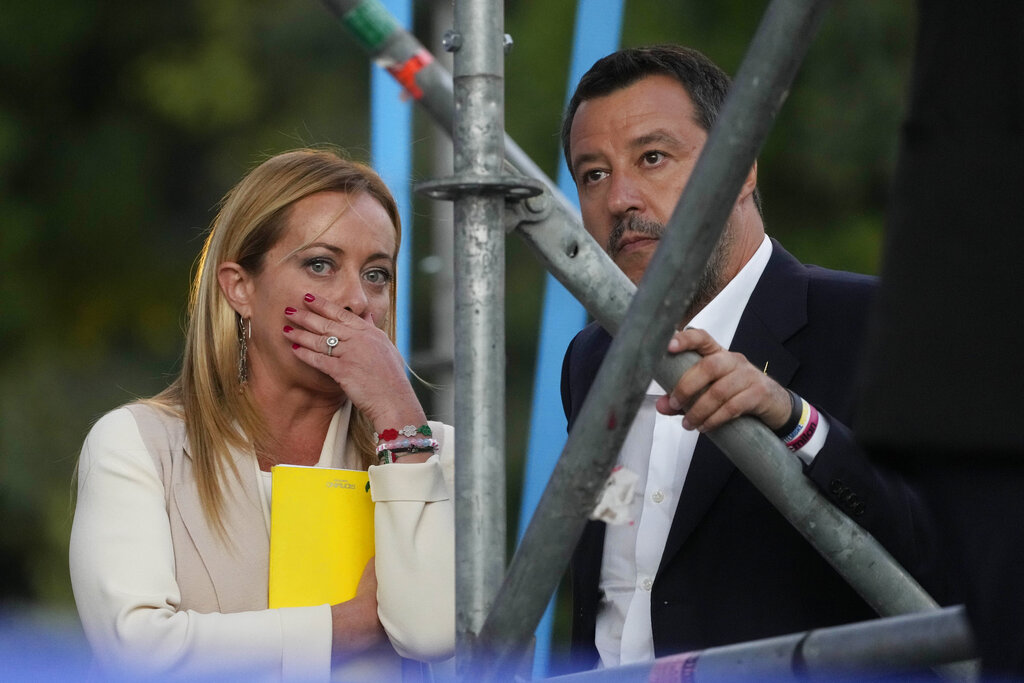“She will be our Golda Meir,” journalist Renato Farina wrote in the newspaper Libero.
The victory of far-right candidate Giorgia Meloni in Italy’s elections over the weekend has led to an intense debate in the Italian media over whether the country’s Jewish minority has cause for concern.
Meloni’s Brothers of Italy (FDI) Party won 26 percent of the vote in Sunday’s much anticipated contest. The FDI will now govern in coalition with two other right-wing parties — the League and Forza Italia, respectively led by former prime ministers Matteo Salvini and Silvio Berlusconi. Turnout in the election was the lowest ever recorded at 64 percent, nine points lower than at the last election in 2018.
In a speech to Spain’s far-right Vox Party earlier this year, Meloni summarized her platform as “Yes to the natural family, no to the LGBT lobby, yes to sexual identity, no to gender ideology… no to Islamist violence, yes to secure borders, no to mass migration… no to big international finance… no to the [EU] bureaucrats of Brussels!”
Several pundits who spoke to Italian media outlets on Thursday voiced anxiety at Meloni’s triumph, with one analyst warning that Italian Jews could be targeted by the new government.
“Jews are among the professionals, the educated people, and they become easy targets when you attack the elites,” distinguished American political philosopher Michael Walzer told La Repubblica.
However, some of Meloni’s supporters have angrily disputed the claim that she would encourage antisemitism, pointing to her backing for Israel and the participation of some Jews in the FDI campaign.
One writer, Renato Farina, went as far as to compare Meloni with Israel’s legendary former Prime Minister Golda Meir, the only woman to serve at the helm of the Jewish state.
“She will be our Golda Meir,” Farina wrote in the newspaper Libero. “Patriotism, identity, purity, education in courage, belonging, community, vision.”
One of the FDI’s successful candidates was Ester Mieli, a 76-year-old former spokesperson for the Jewish community in Rome and the granddaughter of a Holocaust survivor. During her campaign, Mieli stressed that she was standing as an Italian citizen, arguing that “every Jew in the Italian parliament represents himself and not his community” — a position she said was a reflection of her “love for the community to which I belong.”
Italy’s Senate will meanwhile hold its first post-election session on Oct. 13, chaired by Liliana Segre — a survivor of Auschwitz and a life senator who was targeted by far-right extremists in 2019 with death threats and antisemitic messages.
Her party’s ties to Russia have also raised concerns in the media, although Meloni sought to allay those worries shortly after she was elected with a tweet in support of Ukrainian President Volodymyr Zelensky.


